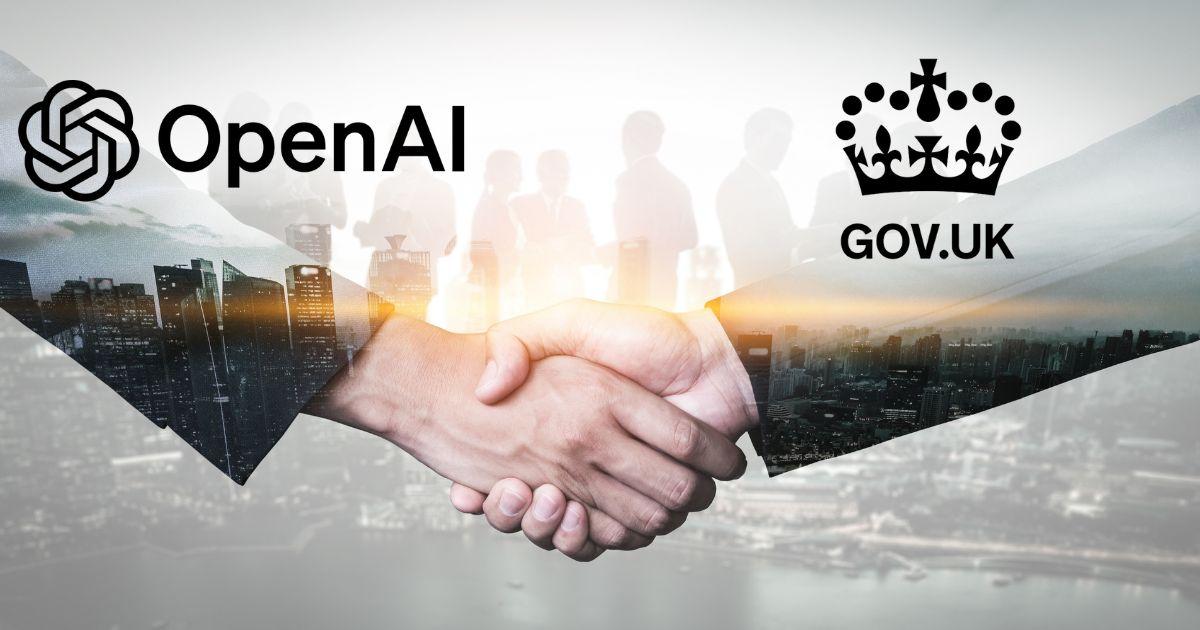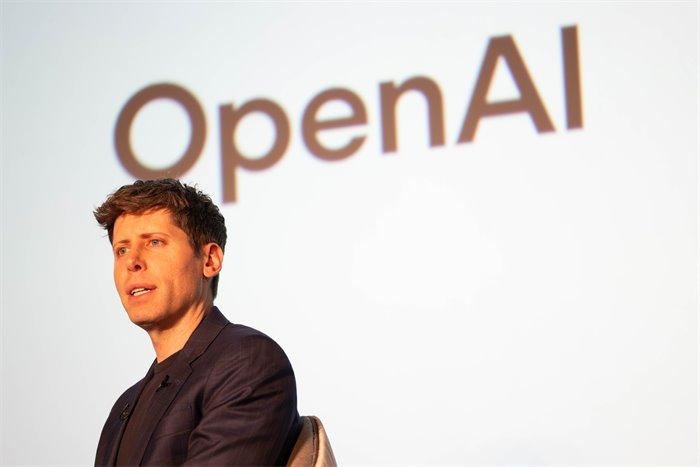A Bold Leap Toward AI-Driven Governance
In a landmark move set to redefine how nations integrate artificial intelligence into governance, OpenAI has officially partnered with the UK government to roll out AI solutions across major public service sectors. Signed in July 2025, this collaboration aims not only to supercharge digital transformation in justice, defense, education, and civil service but also to position the UK as a global leader in responsible AI deployment.
The partnership is anchored by a non-binding Memorandum of Understanding (MoU) signed between OpenAI CEO Sam Altman and UK Technology Secretary Peter Kyle by establishing a framework that blends infrastructure development, technical collaboration, ethical oversight, and skills training.

Revolutionizing Public Services with AI
Under this agreement, AI will be embedded in the very fabric of the UK’s public service delivery model. In the justice system, AI will be used to automate case triage and streamline administrative backlogs. In education, large language models (LLMs) will personalize student learning, assist teachers in assessment, and improve accessibility for differently-abled students.
Meanwhile, the civil service is already running pilots, such as “Humphrey,” an internal AI assistant powered by OpenAI’s models, to help staff draft responses, summarize policy documents, and analyze large-scale public consultations in minutes rather than weeks. The defense and cybersecurity sectors will explore AI for real-time threat detection and predictive analysis, ensuring faster and more secure decision-making.
Infrastructure That Matches Ambition
To support this vision, OpenAI has pledged to deepen its roots in the UK. Its London office which is already a hub for AI safety research, is set to expand significantly, bringing new jobs across engineering, policy, and operations. Additionally, OpenAI is working with UK authorities to evaluate the development of sovereign data centers and AI compute infrastructure. These facilities will not only support public-sector deployments but also help reduce reliance on foreign infrastructure providers.
The initiative aligns with the UK’s broader strategy of becoming an AI superpower. By investing in home-grown infrastructure, the UK aims to foster innovation, decentralize AI access, and improve resiliency in the face of global technological competition.
Economic Growth Meets Technological Innovation
The UK government projects that wide-scale AI integration could increase national productivity by up to 1.5% annually, translating into tens of billions in economic output over the next decade. By enabling smarter workflows, enhancing decision-making, and reducing inefficiencies, AI is being positioned as a key driver of public-sector reform and economic renewal.
This partnership also dovetails with the UK’s AI Opportunities Action Plan, which emphasizes practical deployments that create tangible value. From accelerating NHS reforms to cutting administrative red tape in local councils, the government’s vision for AI is rooted in measurable impact.
Guardrails, Governance, and Trust
The ethical dimension of this collaboration is not being overlooked. Both OpenAI and the UK government have committed to ensuring that any AI deployment adheres to principles of transparency, accountability, and inclusivity. That includes working closely with the UK’s AI Safety Institute to conduct technical evaluations, stress-test models for bias and misuse, and share findings with other democratic nations.
The MoU also calls for open public consultations, independent audits, and citizen feedback loops. These measures are designed to protect civil liberties, data privacy, and intellectual property, it concerns that critics have raised in light of AI’s expanding role in public life.
A Global Signal: UK Bets on AI Diplomacy
The UK’s partnership with OpenAI follows similar agreements with Anthropic, Google DeepMind, and Microsoft, reflecting a broader strategy of AI diplomacy by securing strategic alliances with leading AI companies to stay at the forefront of global innovation. This agreement, however, stands out in both scale and scope, thanks to OpenAI’s reputation for building frontier models like GPT‑4o and its active role in shaping global AI policy.
By integrating OpenAI’s cutting-edge tools into critical national systems, the UK is signaling its willingness to lead by example by demonstrating how powerful technologies can be wielded responsibly for public good.
Voices from the Top

UK Technology Secretary Peter Kyle highlighted the importance of the partnership, stating:
“AI will be fundamental in driving the change we need to see across the country, whether that’s in fixing the NHS, breaking down barriers to opportunity, or driving economic growth.”

OpenAI’s CEO Sam Altman echoed that sentiment:
“AI is a foundational technology for nation-building that will revolutionize economies and foster growth. Our collaboration with the UK will help deliver prosperity for all.”
Their words underscore a shared vision: one in which AI isn't just a tech buzzword but a foundational layer of 21st-century governance.
What Comes Next?
Over the coming months, the UK government and OpenAI will roll out pilot programs across various departments, conduct regular assessments, and refine use cases based on public feedback. Progress updates, ethical reviews, and impact reports will be shared transparently. By 2026, the partnership aims to transition from pilot to scale by setting a benchmark not just for the UK but for other nations eager to responsibly integrate AI into governance.
As the world watches closely, the UK’s AI partnership with OpenAI could become a blueprint for how nations can harness AI to serve, not replace the public. If successful, it could usher in a new era where technology and trust walk hand in hand.


Discussion
Start the conversation
No comments yet
Be the first to share your thoughts on this article. Your insights could spark an interesting discussion!